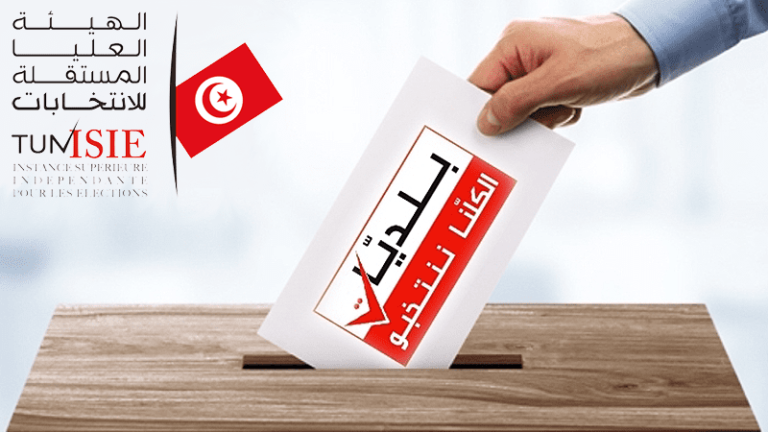
Tunisia, the only true success story from the Arab Spring thus far, finds itself at a crossroads as it approaches major national elections over the next year and a half. Dissatisfaction with government is high. Economic concerns and corruption threaten to undermine trust in the government and the country’s continued development. Violent extremism remains a constant threat. Many Tunisians feel disempowered. The country’s democratic transition is at risk.
On May 6, Tunisians open their electoral sweepstakes by choosing 7,000 municipal council members around the country, with elections for regional and interregional assemblies to follow. These elections are poised to make a major impact in this country of 11.4 million undergoing profound political change, its 2011 revolution very much unfinished. Many observers hope the elections will help address the abiding causes of political discontent, among them the strong perception of regional economic inequality and domination of the political scene by the two leading parties, Islamist Ennahda and liberal and secular Nidaa Tounes.
While the new constitution, ratified after the overthrow of former President Zine el-Abidine Ben Ali in 2011, granted broad authorities to regional and municipal officials and elective bodies, elections for these offices, originally scheduled for 2016, have been routinely postponed due to a raft of logistical and other problems. Now that they are about to occur, Tunisia stands on the cusp of a major redistribution of power to the local level. Many believe this could help address longstanding economic inequity that has manifested itself in high unemployment and stalled development plans, especially outside the capital Tunis and its environs, and empower a new generation of local and regional leaders who could attack these problems without waiting for engagement and largesse from the center. Simply put, the municipal elections are an opportunity to broaden the foundation of Tunisian democracy and challenge politics as usual on a national level.
Problems Growing Worse
Tunisia has had a rough ride in the last few years. The economy remains Tunisians’ top concern by a wide margin; polling conducted by the International Republican Institute in late 2017 indicated that 64 percent of Tunisians identified economic and financial crises as well as unemployment as the biggest problems facing the country. The Tunisian economy suffers from a relatively high unemployment rate of 12 percent, sharply declining productivity, and stagnation in leading industries such as tourism, phosphate exports, and energy production. Poor economic planning and failure to enact promised reforms have aggravated these problems. Some reform efforts have resulted in public anger; when the new budget, released in January, contained significant tax increases, including on staples such as fruits and vegetables, widespread protests broke out, many of which turned violent and provoked accusations of brutality by the security forces.
Democratic political development on the local level is an essential requirement of strengthening democratic governance on a national level.
Terrorism remains a serious threat as well. Following a series of attacks in the country by avowed Islamist militants which killed 73 people in 2015, a security clampdown was imposed, including a state of emergency. Attacks in Tunisia have since fallen sharply. However, the threat of cross-border militancy from Libya is ever-present, and the risk of Tunisian ex-Islamic State members returning from conflicts abroad to wreak havoc—by some accounts over 7,000 Tunisians have joined the ranks of the so-called Islamic State and its offshoots—is very real.
While Tunisia has an admirable human rights record compared to many other Arab states and has made important strides toward implementing constitutional guarantees and international recommendations, some significant shortcomings remain. According to Human Rights Watch, hundreds of people have been slapped with travel restrictions under the state of emergency, and many civilians have been remanded to military courts. Freedom of expression, which is by and large legally protected, has nevertheless been challenged by legal prosecutions of a number of people for insulting public officials, including the president and police. Several journalists have likewise been prosecuted for reporting on pending legislation and government decisions. Despite the fact that Tunisia has erected an impressive legal structure to investigate abuses of the previous regime under a 2013 transitional justice law, a controversial statute passed last year provided general amnesty for civil servants who did not personally benefit from corruption, thus terminating some ongoing prosecutions. The government has held few accountable for crimes of torture under the Ben Ali regime, including cases that resulted in death. Further, the renewal of the mandate of the country’s Truth and Dignity Commission, which is charged with investigating such crimes for prosecution, has been called into question.
Political dysfunction has further jeopardized the democratic transition. Power is increasingly vested in the executive office of the president, Beji Caid Essebsi, who has used a cabinet reshuffle and authority over the national budget to strengthen his rule at the expense of other actors and institutions of government. Some have compared him to longtime dictator Habib Bourgiba, whom he admires and often quotes in conversations. Essebsi’s party, the secularist Nidaa Tounes, and the Islamist opposition Ennahda have governed in a parliamentary coalition that has allowed them to strike secret deals and end-run other parties to manage things largely as they please while evading transparency and accountability. Corruption remains as big a problem as ever and may be even worse than under Ben Ali.
All of this has put the country on edge, posed a challenge to its stability, and contributed to a cynical sense of government ineffectiveness and perfidy. As a result, fear of the authorities remains deep, further contributing to Tunisians’ alienation from party politics.
The Meaning of the Elections for a Troubled Tunisia
As the World Bank has noted, devolving more authority to regions and municipalities through decentralization can “support democratization by giving citizens, or their representatives, more influence in the formulation and implementation of policies… [D]ecisions made with greater participation will be better informed and more relevant to diverse interests in society than those made only by national political authorities.” Putting more decision-making in the hands of regions and municipalities can also stimulate policy entrepreneurship to address economic problems from local perspectives, bring detailed knowledge of local conditions and problems to bear, and spur development of new political leadership cadres that can inform, work with, and influence national parties and authorities. In fact, democratic political development on the local level is an essential requirement of strengthening democratic governance on a national level. This process can also have a salutary economic effect, if citizens choose capable and fiscally responsible leaders whose use of development funds is closely aligned with local needs.
Meaningful devolution of authority to Tunisia’s regions and localities should strengthen Tunisians’ confidence in governance at a grassroots level.
In the Tunisian context, a success of this nature depends on fully implementing the provisions of the 2014 Tunisian constitution that provide for robust local elected leaderships empowered to make resource decisions. Local bodies were to be represented at the national level by a High Council of Local Authorities, which in turn would interact with the national government on development issues, including distribution of resources between the center and the regions. These constitutional provisions were enacted precisely to confront the center-regional economic disparities that have hampered economic development and were a contributing factor to the 2011 protests against the Ben Ali regime. To make this a reality, not only must the elections go ahead as planned but—and this is crucial—the parliament must pass a new local government code to prescribe the legal powers of municipal bodies, without which local officials will lack necessary authorities over resources and services.
One measure of success is whether the upcoming elections generate viable local alternatives to Ennahda and Nidaa Tounes. In addition to creating new grassroots leadership, the competition will pressure representatives of the two main parties elected at the municipal and regional levels to be responsive to local concerns, especially on economic issues, and act as effective interlocutors with national party representatives in government. This would help strengthen Tunisian democracy and set the stage for more meaningful and participatory national elections for president and parliament in 2019.
Voter turnout is another issue that will have an impact on how these elections will affect the country. Around two thirds of Tunisian youth boycotted the parliamentary and presidential elections in 2014, and many Tunisians have expressed a loss of faith in the democratic process. Strong voter turnout, followed by meaningful devolution of authority to Tunisia’s regions and localities, should strengthen Tunisians’ confidence in governance at a grassroots level and generate policy choices and preferences that stand to influence the national political dialogue. Alternatively, low turnout or a significant protest vote could harm perceptions of the legitimacy and authority of government. Mobilization efforts will be one important factor in convincing Tunisians of the elections’ significance and in turning out the vote; such efforts proved largely successful on a national level in the runup to the 2014 elections.
Washington’s Interest
The United States has an interest in the outcome, insofar as consolidation of Tunisia’s democracy contributes to stability in North Africa. A successful political transition here would serve as a powerful reminder that there is a third alternative to the false choice between authoritarianism and anarchy, one that may help discourse elsewhere in the region, most notably in Egypt.
The United States and the European Union can work closely with civil society in Tunis and in the provinces to build their capacity to act as mediators between Tunisians and their representatives.
In security terms, Tunisia is at once an important ally and a tempting target. As noted, it faces its own terrorist threats and has been a smuggling route for arms and militants operating in North Africa. Tunisia, which hosts tens of thousands of Libyan refugees, is a key observation point on that conflict for the US military, which reportedly operates unarmed surveillance drones out of a Tunisian air base to keep an eye on Islamic State militants in Libya. In 2015, Tunisia was designated as a “major non-NATO ally” by the United States, which intensified military cooperation with the Tunisian government as a reflection of its concern about the militant threat in the region. Thus, Tunisia’s internal stability is a priority for the United States; indeed, Washington can ill afford another potential crisis zone in a volatile region and needs a stable Tunisian partner in its effort to combat terrorism in North Africa.
There is a good deal the United States can do to help its North African ally. In coordination with its European allies, which have the largest stake in ensuring that Tunisia does not act as a way station for the export of terrorism and refugees to Europe, Washington should provide strong diplomatic support for strengthening Tunisia’s democracy and ensure it has the financial resources to support its development plans, particularly in the hinterlands. By earmarking portions of its development assistance ($205.4 million in combined military and civilian aid in 2017) for administration by elected municipal and regional authorities, Washington can also help ensure that these officials build their capabilities and credibility as responsible public stewards, thus contributing to Tunisia’s democratic experiment. In this connection, the Trump Administration would do well to rethink its plans to significantly cut aid to Tunisia, a terrible signal at just the wrong moment.
Beyond dealing with governments, on the national or local levels, the United States and the European Union can work closely with civil society in Tunis and in the provinces to build their capacity to act as mediators between Tunisians and their representatives, which includes effective advocacy for constructive policy outcomes. In combination with targeted aid to the provinces, this will go a long way to help assure individual Tunisians that their voices are being heard and their participation in the country’s politics is valued. It also would augment the country’s governance, democratic development, and human rights; after all, Tunisia was where the Arab Spring protests began and took root.

